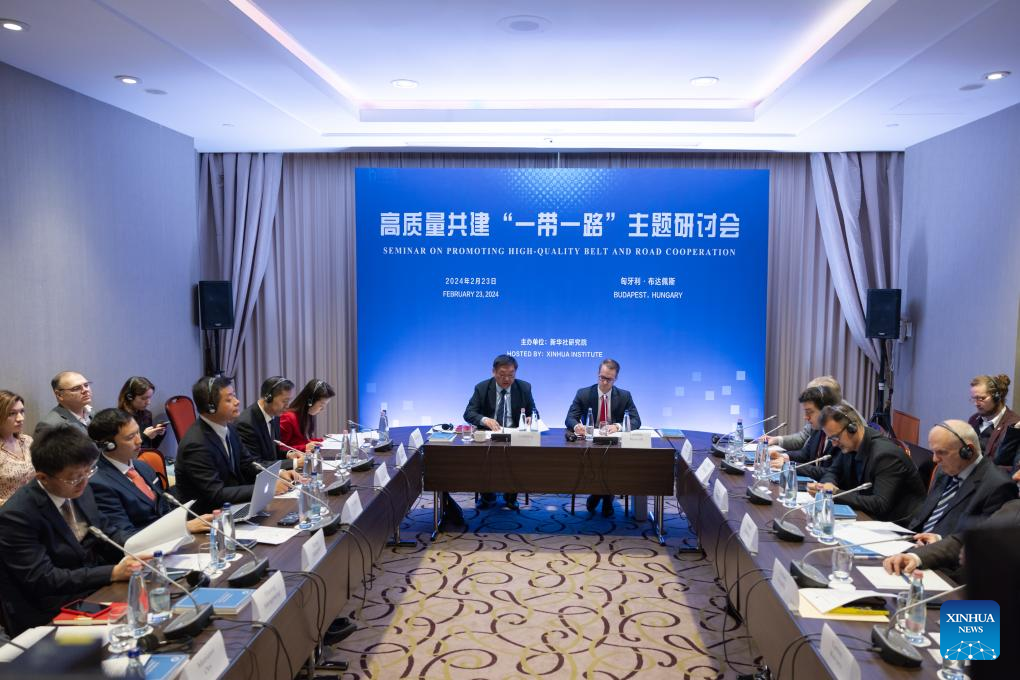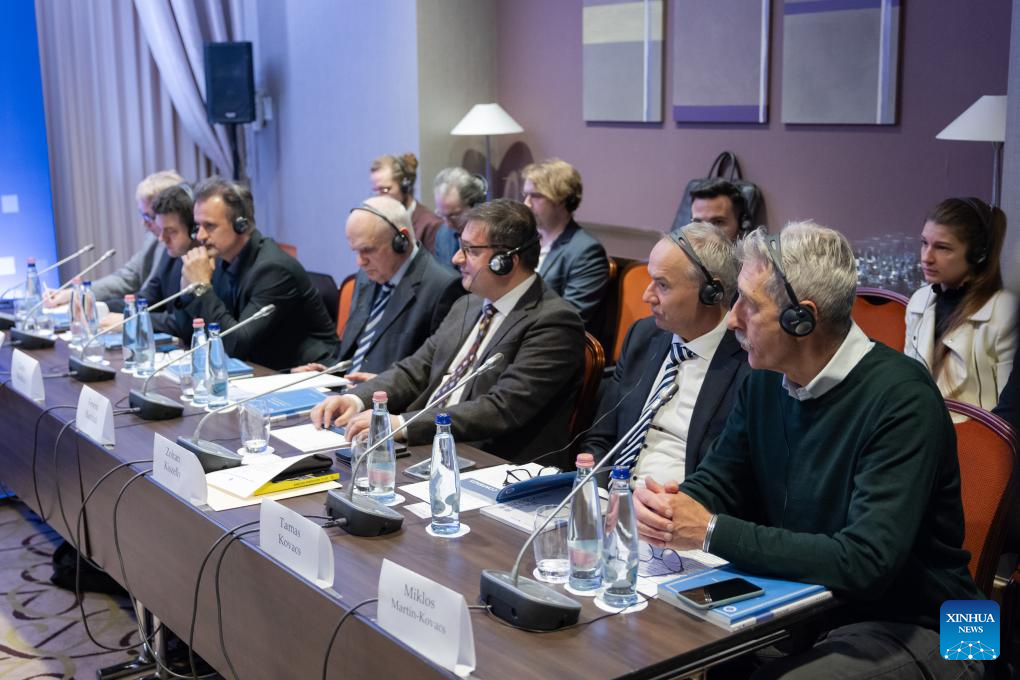

This photo taken on Feb. 23, 2024 shows a scene of a seminar on Promoting High-quality Belt and Road Cooperation in Budapest, Hungary. Experts from both Hungary and China discussed China's decisive role in global connectivity through the Belt and Road Initiative (BRI) and expected deepening China-Hungary friendship through BRI during a seminar held here on Friday.
The seminar on Promoting High-quality Belt and Road Cooperation was organized by the Xinhua Institute, a media-based think tank from China. (Photo by Attila Volgyi/Xinhua)
Experts from both Hungary and China discussed China's decisive role in global connectivity through the Belt and Road Initiative (BRI) and expected deepening China-Hungary friendship through BRI during a seminar held here on Friday.
The seminar on Promoting High-quality Belt and Road Cooperation was organized by the Xinhua Institute, a media-based think tank from China.
"The cooperation between our countries is built on solid economic reasoning," said Csaba Moldicz, head of the School of International Relations at the Mathias Corvinus Collegium.
He praised Chinese firms like BYD and battery giant Contemporary Amperex Technology Co., Ltd. (CATL) for their role in modernizing Hungary's automotive sector, a critical component of its economy.
"Investments from companies like BYD and CATL are exemplary of high-quality cooperation, fitting both the strategies of Chinese firms and Hungary's development strategies as well," he added.
CATL has started to build a new factory in the eastern Hungarian city of Debrecen, while BYD plans to build a new factory in the southern Hungarian city of Szeged. Both investments are worth billions of euros.
Many experts attending the seminar advocated for deeper bilateral friendship through joint efforts, especially within the BRI framework.
"The similarities in political philosophy between Hungary and China have led to stronger bilateral relations, with both nations striving for higher quality cooperation based on mutual understanding and respect," said Levente Horvath, director of the Eurasia Center of John von Neumann University.
Gergely Salat, a researcher at the Hungarian Institute for International Affairs, highlighted Hungary's keen participation in the BRI. The Hungarian government has listed connectivity high on its official strategy, while China was the first big country that put connectivity at the center of its foreign policy, Salat said.
Ferenc Banhidi, a professor at Pazmany Peter Catholic University, spoke highly of the Chinese digital giants like Huawei and ZTE for their successful integration into Hungary's economy. He also applauded the innovative business models of Chinese e-commerce leaders such as Temu, predicting significant benefits for Hungary's various sectors.
Zoltan Kiszelly, director of the Center of Political Analyses at the Szazadveg Institute, said that the BRI represents a collective approach to addressing global challenges, transcending traditional geopolitical rivalries.
It's a call for enhanced cooperation in an increasingly multipolar world, prioritizing shared success over individual gains, he said.
Speaking about today's global challenges and difficult international situation, Kiszelly said they were not "unavoidable." "Instead, there is another road, well known to most Europeans, it is the road of cooperation or connectivity," he said.

This photo taken on Feb. 23, 2024 shows a scene of a seminar on Promoting High-quality Belt and Road Cooperation in Budapest, Hungary. Experts from both Hungary and China discussed China's decisive role in global connectivity through the Belt and Road Initiative (BRI) and expected deepening China-Hungary friendship through BRI during a seminar held here on Friday.
The seminar on Promoting High-quality Belt and Road Cooperation was organized by the Xinhua Institute, a media-based think tank from China. (Photo by Attila Volgyi/Xinhua)
The first training camp of the Center of Innovation and Maritime Excellence, supported by Chinese companies, was opened Thursday in Djibouti City, the capital o...